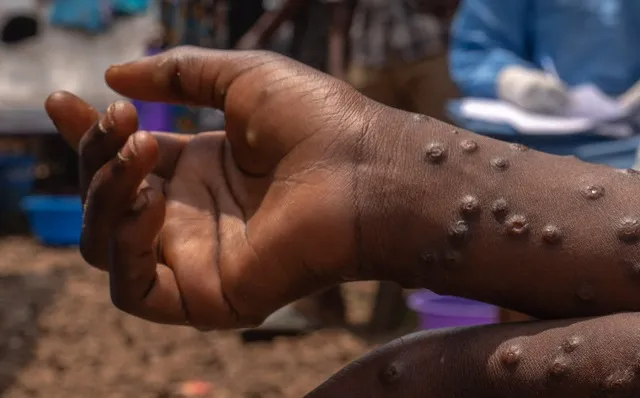The Ghana Health Service (GHS) has confirmed 18 new Mpox infections, bringing the cumulative total of recorded cases in the country to 346. Importantly, the death toll remains at one, with no new fatalities and no current hospital admissions.
Trends and Context: A Slow but Steady Rise
This rise follows a previous report that saw 20 new cases, which had pushed the total to 302. The addition of 18 more cases marks a significant uptick in recent weeks, though still lower than initial outbreak surges.
Despite the upward trend, GHS reiterates that Mpox (formerly Monkeypox) remains under control. Close contact remains the primary mode of transmission, and the virus continues not to pose high hospitalization or mortality risks in Ghana.
Read Also: COVID‑19 Resurgence at University of Ghana: Health Officials Urge Vigilance
Key Public Health Directives
GHS continues to urge vigilance among Ghanaian residents with the following preventive advice:
-
Avoid close contact with anyone exhibiting Mpox symptoms.
-
Wash hands frequently with soap and water.
-
Wear a mask when caring for someone who is ill.
-
Refrain from handling animals that may carry the virus, including wild game.
-
Promptly report any suspicions of infection to health facilities.
Additionally, the Service is continuing its coordination efforts across regional directorates to step up contact tracing, outbreak monitoring, and national response strategies.
Why This Update Matters
-
Increased Case Detection
The continued detection of new infections signals that Mpox remains a public health concern requiring sustained attention from both authorities and citizens. -
No New Fatalities or Hospitalizations
The lack of new deaths or admissions provides a measure of relief and suggests early detection and mild symptom management in most cases. -
Emphasis on Preventive Awareness
Public education on hygiene, symptom recognition, and isolation plays a central role in controlling the spread without resorting to lockdowns or punitive measures.
Global Outlook and Broader Implications
As part of the 2023–2025 global Mpox epidemic, which WHO declared a public health emergency in August 2024, Ghana’s case tally contributes to a broader continental surveillance effort. The global outbreak—though severely impacting Central Africa—has seen lower mortality rates where public health responses remain swift. Continued updates like this one are critical for situational awareness and health planning.
Mpox typically presents with rash, fever, and swollen lymph nodes, and can be particularly dangerous for children, pregnant women, and immunocompromised individuals.

